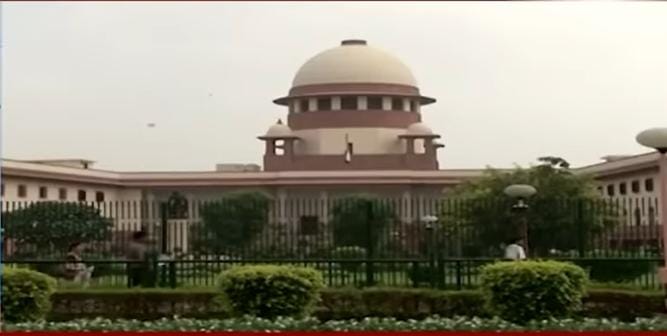
NEW DELHI: The Supreme Court on Thursday lifted the Allahabad High Court’s stay on the 100-year-old Ramlila festivities at a school playground in Firozabad, but asked the UP government to find another spot in future so that students have exclusive use of the playground so that the students do not lose their play space.
A Bench headed by Justice Surya Kant had decided to urgently list the case for hearing after the Ramlila organisers rushed to the top court against an expert stay issued by the Allahabad High Court on the ongoing celebrations at the Jilla Parishad Vidyalaya in Firozabad district. The organisers argued that Ramlila was played at the school grounds for at least 100 years. The school does not object to the festivities and the children also participate.
The petitioner whose public interest litigation (PIL) in the High Court had won a stay of the celebrations countered that “secular” school playgrounds ought not to be allowed to host religious celebrations. School grounds were dedicated spaces for children who should not be deprived of space for their recreation. A huge stage has been erected on the school ground which has large portions paved with interlocking tiles, he added.
“But the organisers say the event has been organised at the same space for 100 years. Why did you not come earlier? Why did you not complain to the district authorities? Why did you approach court when the celebrations had already commenced on September 14?” Justice Kant asked the petitioner’s counsel.
Freezing the High Court’s stay order, the Supreme Court allowed the Ramlila celebrations on the playground to continue while asking the High Court, which is scheduled to hear the case on November 4, to “impress upon” the district administration to identify an alternative place for holding these events in the future.
“This is so that the playground can be exclusively used by the students of the school,” Justice Kant underscored, disposing of the case.
Seven years ago, in 2018, the Supreme Court had asked a Constitution Bench to decide authoritatively whether religious and ceremonial activities can be allowed in state-owned premises “in view of our Constitution being secular in nature”.
On the Ramlila Maidan Incident, the Supreme Court had reminded State authorities that right to education was also part of the Directive Principles of State Policy and “compulsory and primary education is treated as a part of Article 21 [right to life] of the Constitution, which has consequently led to the enactment of the Right of Children to Free and Compulsory Education Act, 2010”.
A 2023 decision of the Calcutta High Court had concluded that a school playground, even of a government institution, could by “no stretch of imagination” be used to hold festivals.
In Sudarsan Mandal versus The State Of West Bengal, the High Court had held that a school premises cannot be designated as a “public ground” for the purpose of holding festivals.
“Even if a school playground belongs to a government-aided school, the same ipso facto does not convert the playground of the school, which is an educational institution, to a public, free-for-all area where any and everybody can seek to organise any festival whatsoever,” the Calcutta High Court had observed.






